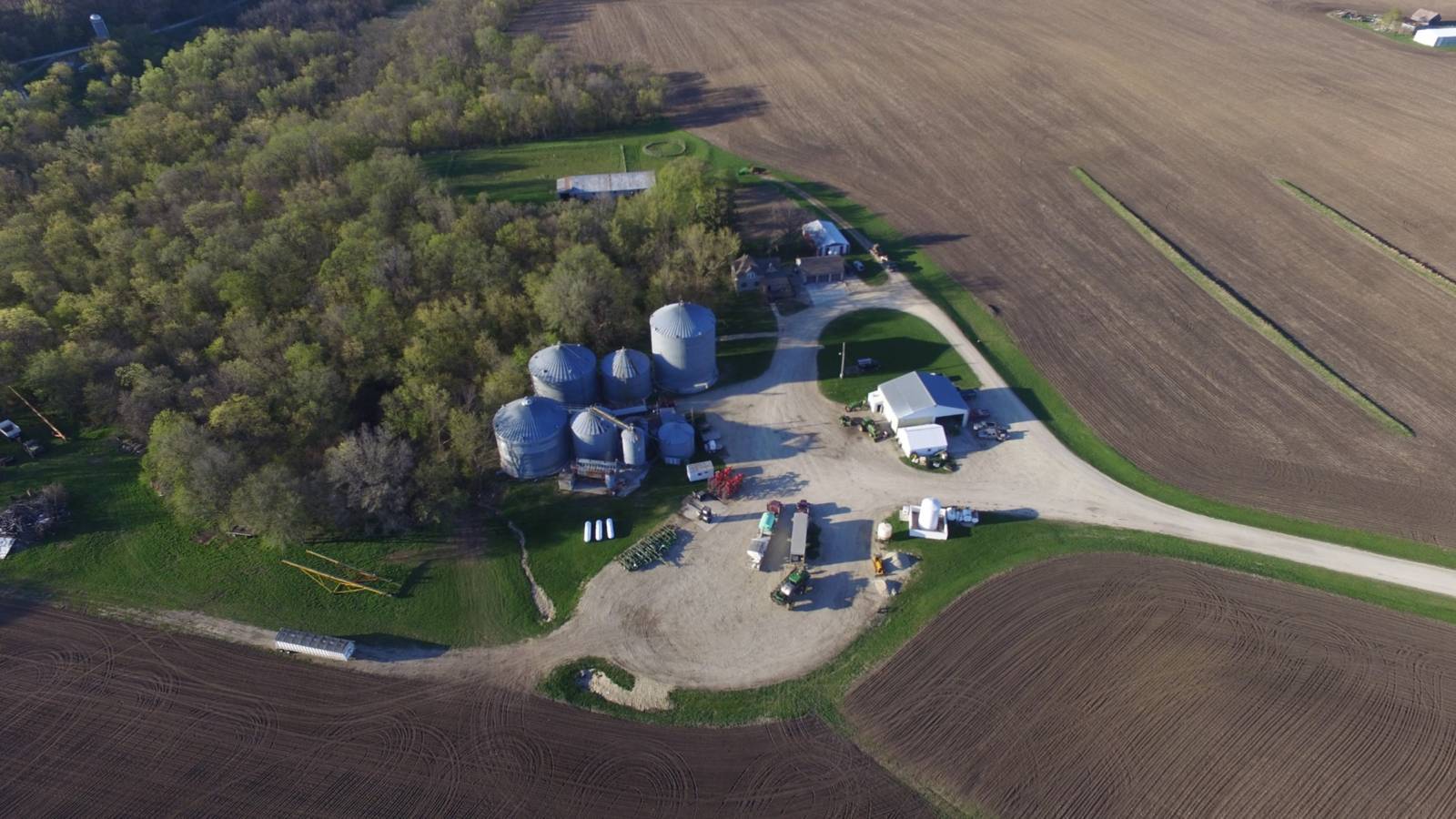 Throughout the 2022 growing season, USSOY.org will provide regular Ground Work updates from several U.S. soybean farmers around the country. Follow their updates, #GroundWork2022, to learn about their farms and commitment to producing a reliable, sustainable supply of high-quality soy.
Throughout the 2022 growing season, USSOY.org will provide regular Ground Work updates from several U.S. soybean farmers around the country. Follow their updates, #GroundWork2022, to learn about their farms and commitment to producing a reliable, sustainable supply of high-quality soy.
When fourth-generation farmer Keith Schrader was young, his father took an off-farm job, and began renting the fields to neighbors.
“I would sit in school, and all I could think about was farming,” he says.
In 1975, at age 16, he began renting about 12 hectares, or 30 acres, of land from his father and started farming on his own. After graduating from high school, he took on the entire home farm, about 69 hectares, or 170 acres.
“We have been growing the farm and the family ever since,” Keith says.
His first partner has been his wife Carol, an emergency room nurse, and they were married in 1978. They farm near Nerstrand, Minnesota, about 65 km, or about 40 miles, south of Minneapolis in the upper U.S. Midwest.
They raised four children, and now have 10 grandchildren. Oldest son Kurt and his wife Sarah have two children. Kurt is an electrical contractor, and Sarah is a registered nurse. Second son Derek is an airline pilot, and his wife Becca works in healthcare as a manager of imaging for a hospital group. They have two children. Keith and Carol’s daughter Michelle, a registered nurse, and her husband Rusty, a correctional officer, also have two children. And, their youngest son Brian and his wife Lauren have four children. Brian is a heating and air conditioning contractor, while Lauren works as a regional sales representative for a seed company, and they also have a small cow-calf beef herd.
“In addition to their other jobs, Kurt, Derek and Brian and their families were farming on their own,” Keith explains. “In 2015, we decided to officially begin working together, becoming Wheeling Grain Partnership.”
Today, Wheeling Grain Partnership encompasses more than 2,300 hectares, or about 5,700 acres. The Schraders raise non-GMO food-grade soybeans, GMO soybeans for seed, conventional commodity soybeans, and both GMO and non-GMO corn, with the help of three full-time employees.
In the mid-2000s, Keith found that raising crops like food-grade soybeans and non-GMO corn, which offered premiums on prices, made a difference in remaining viable and profitable. And, he discovered a passion within farming.
“I enjoy the challenge of raising foodbeans! I am proud of our ability to produce high-quality soybeans with perfect color and other characteristics our customers need,” he explains. “I also love working with the people, meeting customers and building long-term relationships with them.”
That passion led him toward industry service. Keith served nine years on the Minnesota Soybean Promotion and Research Council. To better understand the full value chain that delivers food-grade soybeans from his fields to international customers, he also got involved in what has become the Specialty Soya and Grains Alliance (SSGA), where he currently serves as a board member. At the same time, he currently represents Minnesota and foodbean growers as a member of the U.S. Soybean Export Council (USSEC) Strategic Utilization Team focused on human and oil use.
“I’ve learned how the soyfood system works end-to-end,” he says. “We’ve traveled to meet customers in countries like China, Indonesia, Japan, Malaysia, Moldova, the Philippines, Singapore, Taiwan, Thailand, Turkey and Vietnam. And we’ve welcomed customers to our farm, building long-standing relationships.”
Wheeling Grain Partnership delivers food-grade soybeans primarily for use in tofu and soy milk in Southeast Asia. According to Keith, they truck their foodbeans either to SB&B Foods, Inc., about 217 km, or 135 miles, northeast of their farm, or to Grain Millers Inc, located about 72 km, or 45 miles, west of their farm. Both of these exporters process the soybeans and ship them via container on trains to ports in the Pacific Northwest of the U.S. or Canada.
Commodity soybeans and most of the corn from Wheeling Grain Partnership is delivered to the nearest grain terminal on the Mississippi River, about 55 km, or 35 miles, from the farm. The seed soybeans they raise are cleaned regionally for other farmers to plant the following season.
Keith sees sustainability as part of producing a quality product, so these soybeans meet the U.S. Soy Sustainability Assurance Protocol (SSAP), and they also fall under the U.S. Identity Preserved brand. Keith says their fields include a wide variety of soil types and topography, so they use a wide variety of practices to protect soil health and water quality, including different types of tillage and cover crops.
Throughout 2022, Keith will share how he raises food-grade soybeans and other crops to produce high-quality, sustainable products for his customers through regular updates on USSOY.org.

